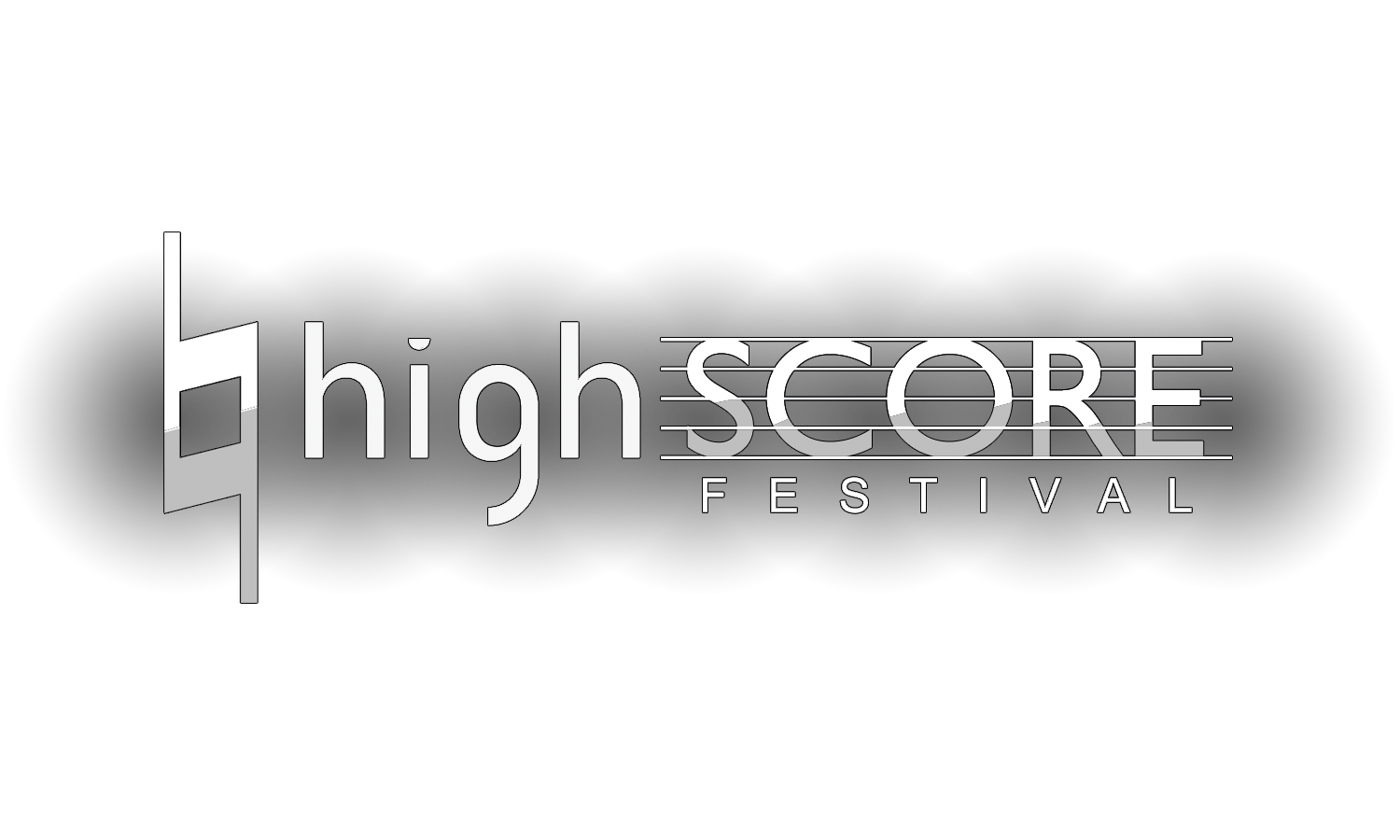People
Guest of honor: Helmut Lachenmann
Composition faculty: Amy Beth Kirsten, Dmitri Tymoczko, Nick DiBerardino
Performers: mdi ensemble; Musicologist in residence: Giovanni Cestino
highSCORE Advisory Board: Amy Beth Kirsten, David Serkin Ludwig, Dmitri Tymoczko
Executive producer: Paolo Fosso; Artistic director: Giovanni Albini
Assistant artistic director: Alberto Barberis; Production assistant: Fabrizio Nastari
Helmut Lachenmann
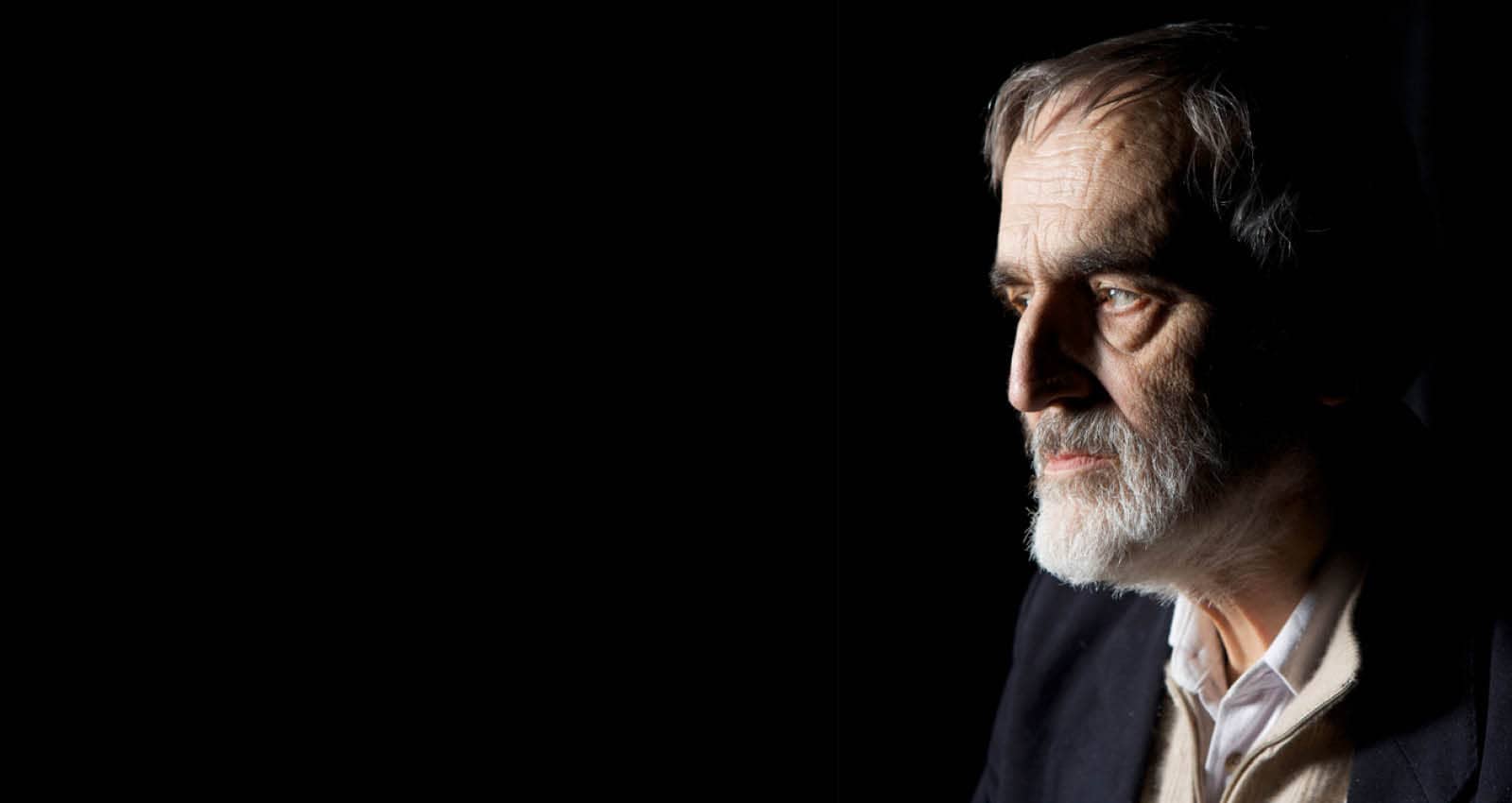
A legend of contemporary music, Helmut Lachenmann was born 1935 and raised in Stuttgart, where he studied piano with Jürgen Uhde, as well as theory and composition with Johann Nepomuk David, from 1955 to 1958. He continued his studies in Venice with Luigi Nono, in whose home he stayed and who would have a decisive influence on his work. Lachenmann returned to Germany in 1961, and from 1963 to 1965, he took Karlheinz Stockhausen‘s new music course in Cologne. After a stint at the electronic music studio of the University of Ghent, he was awarded the Kulturpreis für Musik from the city of Munich in 1965. He taught at the Musikhochschule of Stuttgart (1966-1970) and then of Ludwigsburg (1970-1976) before being appointed professor of composition in Hanover (1976-1981) and then again in Stuttgart (1981-1999). In 2010, he was a guest professor at the Musikhochschule in Basel.
By the end of the 1960s, Lachenmann had developed the notion of instrumental musique concrète, in reference to the ‘bruitist’ sounds produced by instruments, and elaborated taxonomies based on the mode of production associated with a particular gesture and based too on the resulting sound. He inventively broadened the palette of the performers, differentiated the modes of play, the manipulations, and concerned himself with the whole structure of the instrument. Inviting the listener to active perception, Lachenmann also integrates into his compositions traditional musical objects, notably dance rhythms and evocations of traditional songs or works from the classical repertory. His music is characterised by both æsthetic purification and a rejection of all forms of pre-codified ordering.
Lachenmann has taught composition workshops and seminars around the world, including in Darmstadt (several times since 1972), Basel (1972-1973), Brazil (1978 et 1982), Toronto (1982), Buenos Aires, Santiago de Chile and Tokyo (1984), Blonay, (1988), Akyoshida (Japan, 1993), Viitasaari (Finland, 1998), Acanthes (France, 1999), New York (Juilliard School, 2001), and the Fromm Foundation (Harvard, 2008).
He holds honorary doctorates from the Universities of Hanover, Dresden, and Cologne, and is a member of the Arts Academies of Berlin, Hamburg, Leipzig, Mannheim, Munich, and Brussels.
Amy Beth Kirsten
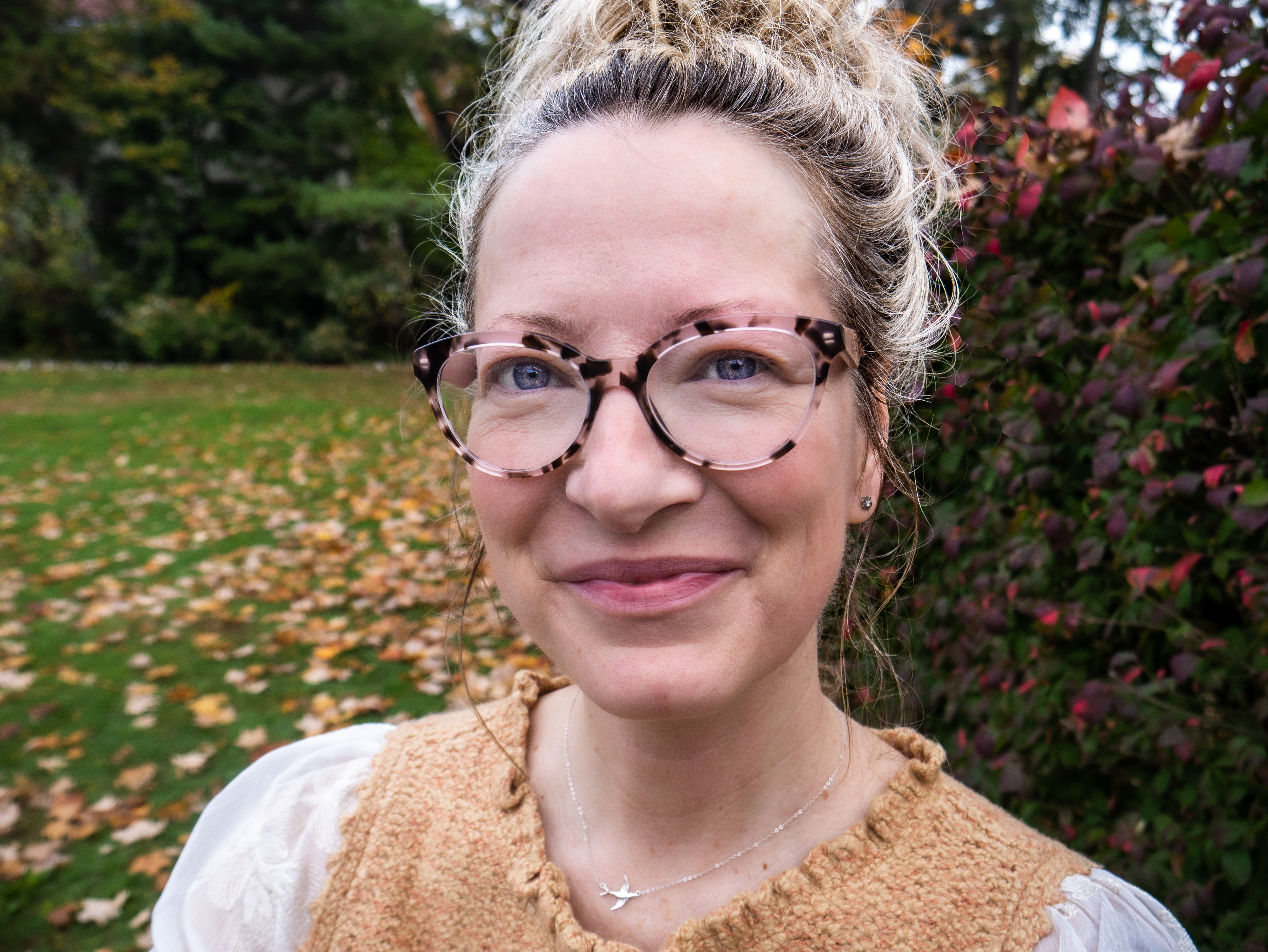
Amy Beth Kirsten, “…one of America’s most innovative and visionary composers,” (BBC Music Magazine, March 2019) is known primarily for her for multi-year, multimedia theatrical collaborations. She has cast herself in roles as varied as composer, poet, filmmaker, vocalist, and director. Ms. Kirsten has been recognizedwith awards and fellowships from the American Academy of Arts and Letters (2020), John S. Guggenheim Foundation (2010) and the Rockefeller Foundation (2009) and has created works for her own ensemble HOWL (2012-2018), musicians of the Chicago Symphony Orchestra, the New World Symphony, Peak Performances, the multi-Grammy-winning eighth blackbird, among many others. An original story written by Ms. Kirsten and Timothy Leopold (trumpet) is the catalyst for her current project, Jacob in Chains, an evening-length Christmas ghost story and immersive event for Alarm Will Sound. Jacob is a present-day character inspired by Jacob Marley, from Charles Dickens’ “A Christmas Carol.” She was recently appointed to the composition faculty at the Juilliard School where she will maintain a private studio and teach a two-semester course called “Theatre Etudes.” She also teaches at the Curtis Institute of Music in Philadelphia, PA and is Director of The Artist Residency at Longy School of Music of Bard College.
Dmitri Tymoczko
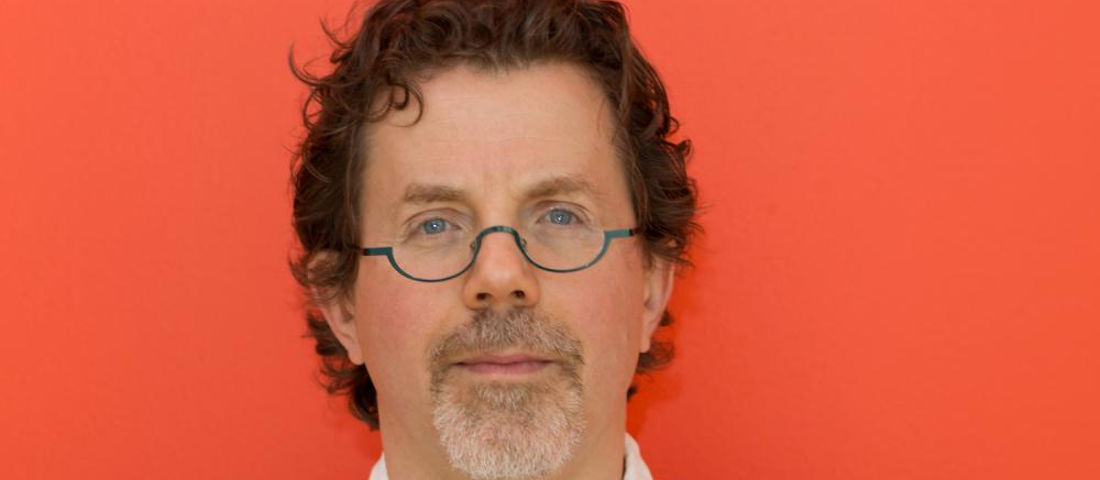
Dmitri Tymoczko was born in 1969 in Northampton, Massachusetts. He studied music and philosophy at Harvard University, and philosophy at Oxford University. He received his Ph.D in music composition from the University of California, Berkeley. He is currently a Professor of Music at Princeton, where he has taught composition and theory since 2002. He lives in Philadelphia with his wife, Elisabeth Camp, who teaches philosophy at Rutgers University, their son Lukas, who was born in 2008, and their daughter Katya, born 2012. His compositions are polystylistic and mercurial, drawing on genres from the Renaissance to rock. His music has been commissioned and performed by groups including the Amernet Quartet, the Atlantic Brass Quintet, the Brentano Quartet, the Corigliano Quartet, Flexible Music, Gallicantus, the Gregg Smith Singers, the Illinois Modern Ensemble, Janus Trio, the Kitchener/Waterloo symphony, Network for New Music, Newspeak, Pacifica Quartet, Synergy Vocal Ensemble, Third Coast Percussion Quartet, and Ursula Oppens. Among his awards are a Guggenheim fellowship, a Rhodes Scholarship, the Leonard Bernstein fellowship from Tanglewood, a fewllowship from the Radcliffe Institute for Advanced Study, and the Block lecturship from the Society of Industrial and Applied Mathematics. His book A Geometry of Music (Oxford) has been described as “a tour de force” (The Times Literary Supplement), a “monumental achievement” (Music Theory Online), and, potentially, a modern analogue to Schoenberg’s Harmonielehre (The Musical Times). His first three CDs, Beat Therapy (“far reaching yet utterly entertaining,” Newmusicbox), Crackpot Hymnal (“ebullient … polystylistic … kinetic … vividly orchestrated and vibrantly paced,” Sequenza21), and Rube Goldberg Variations (“foot tapping,” “sassy,” the product of “an intriguing musical voice that should interest anyone in search of a new auditory experience,” Limelight), are available from Bridge Records. A new disc, Fools and Angels has just been released. In addition to composing concert music, Dmitri enjoys playing rock and jazz and writing words. His articles have appeared in the American Mathematical Monthly, the Atlantic Monthly, Berfrois, Boston Review, Civilization, Integral, Journal of Music Theory, Lingua Franca, Music Analysis, Music Theory Online, Music Theory Spectrum, Science, Seed, and Transition. His article “The Geometry of Musical Chords” was the first music-theory article published in the 130-year history of Science magazine. He has been invited to speak to audiences of musicians, philosophers, cognitive scientists, mathematicians, physicists, and the general public; articles about his work have appeared in a variety of newspapers and magazines, including Time, Nature, and Physics Today.
Nick DiBerardino
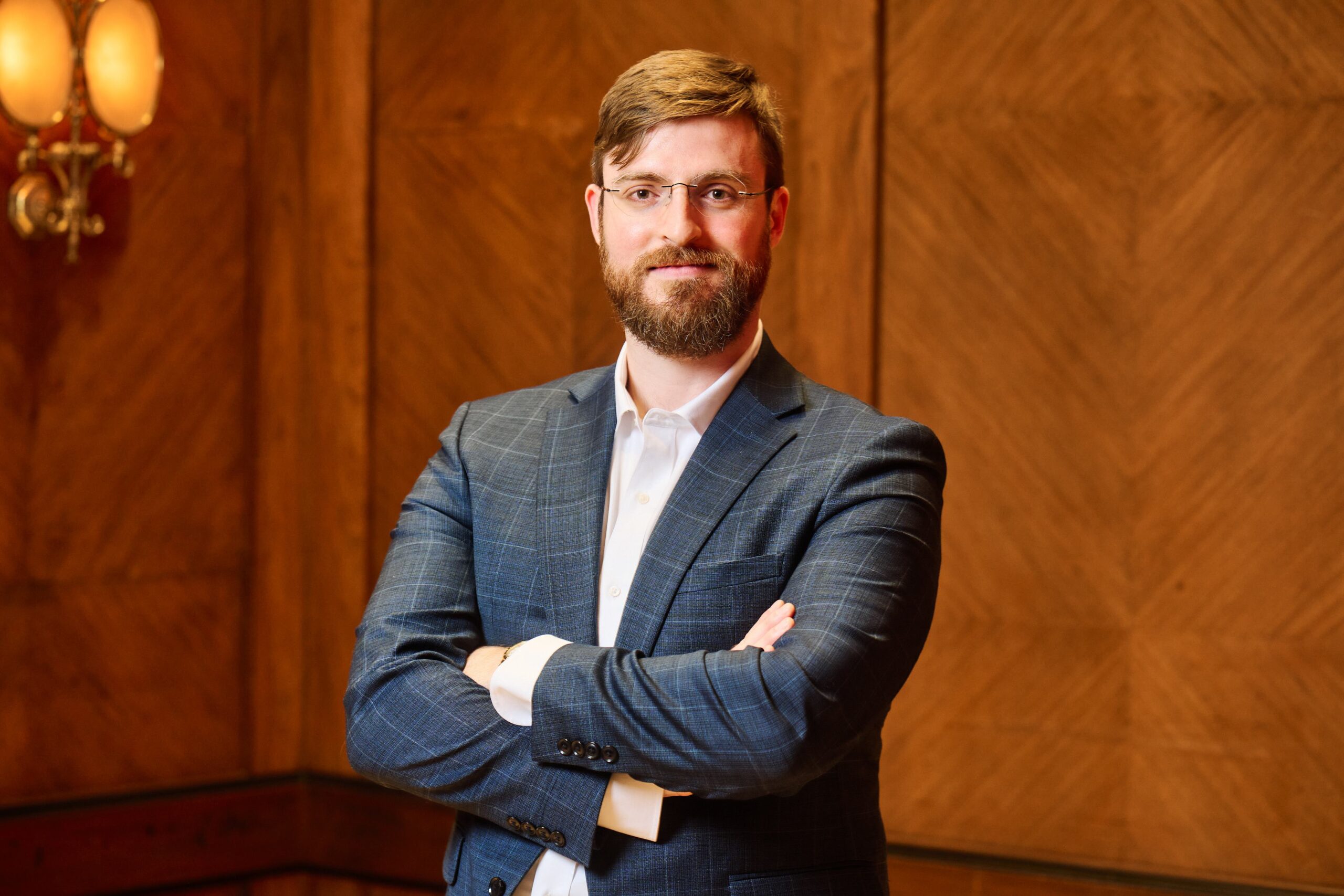
Composer Nick DiBerardino is noted for creating “richly textured, multilayered” sound worlds (Minnesota Star Tribune) that tell fantastical tales. He has written music about everything from failed flying machines and particle physics to Walt Whitman and tall glasses of beet juice. A Rhodes Scholar, Mr. DiBerardino has received commissions from many distinguished artists and institutions, including Symphony Tacoma, the Dover Quartet, Philadelphia Chamber Music Society, Sandbox Percussion, the New College Choir, arx duo, Lake Champlain Chamber Music Festival, Music From Angel Fire, and Star Trek’s John de Lancie. Residencies include those for the Intimacy of Creativity Festival at the Hong Kong University of Science and Technology, Avaloch Farm Music Institute, and Hidden Valley Music Seminars, where Mr. DiBerardino is a founding faculty member of the Emerging Composers Intensive. His works have been performed around the world by the American Composers Orchestra, the Minnesota Orchestra, Aizuri Quartet, Contemporaneous, So Percussion, and many others. Mr. DiBerardino founded England’s first laptop orchestra, OxLOrk, and has designed several collaborative composition initiatives, including a children’s opera composed with students at Girard College and a workshop series for people living with Alzheimer’s disease, created in partnership with the Penn Memory Center. He earned his bachelor’s degree at Princeton University, an M.Phil with distinction from the University of Oxford, an M.M. from the Yale School of Music, a Post-Baccalaureate Diploma from the Curtis Institute of Music, and an M.F.A. from Princeton University, all in composition. Mr. DiBerardino is the dean of the Curtis Institute of Music. He serves on Curtis’s composition faculty as chair of composition studies. He is additionally the director Curtis’s acclaimed new music series, Ensemble 20/21.
Giovanni Albini
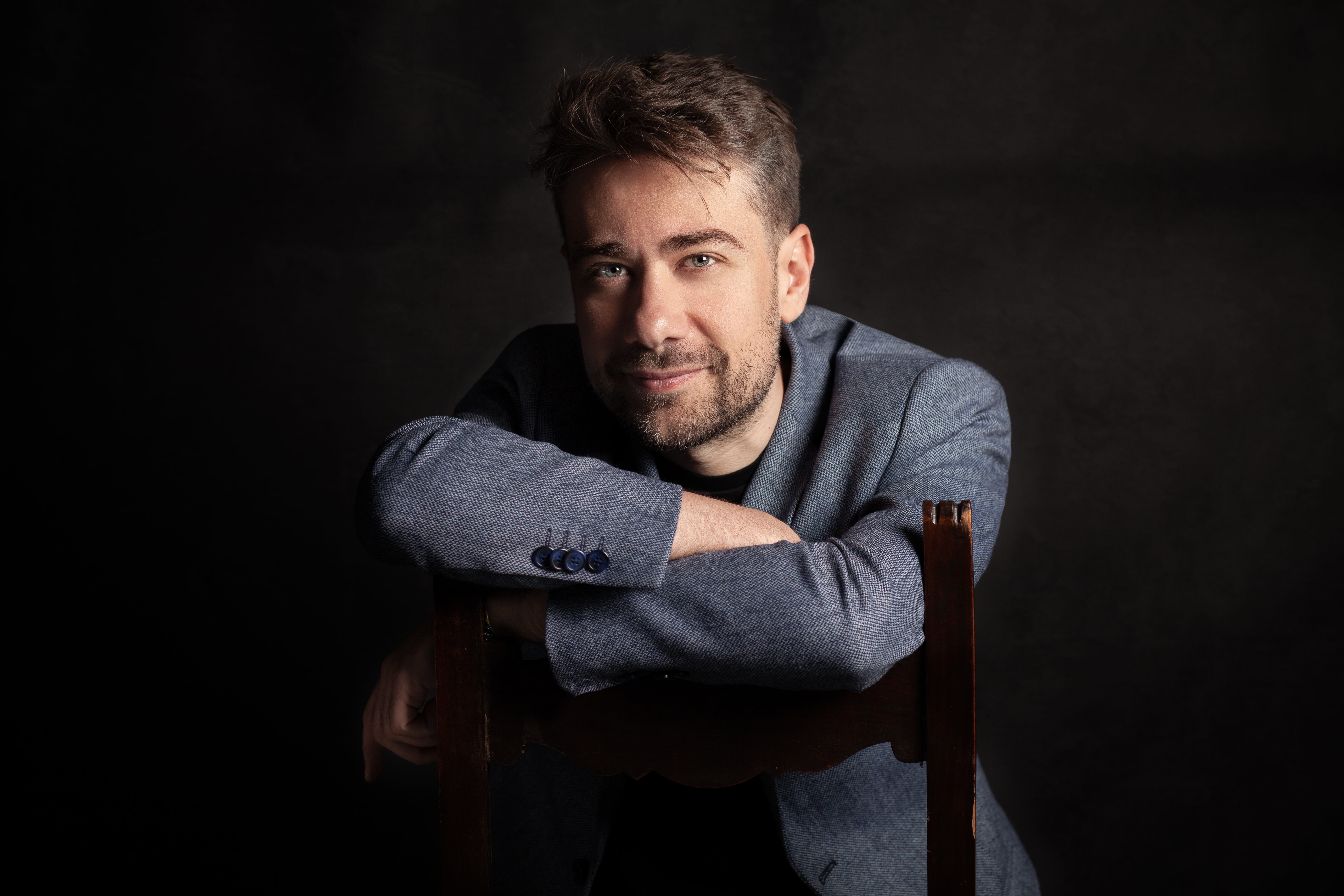
Giovanni Albini (b. 1982), composer, ukulelist and music theorist, is a tenured professor of Music Theory, Solfège and Music Perception and head of research at the Conservatory “Antonio Vivaldi” of Alessandria, where he has established the world’s first Bachelor’s degree program in Ukulele, teaches Composition at the bachelors of the Conservatory of Lugano (Swiss Confederation), and is an academic member of the Istituto di Studi Superiori dell’Insubria “Gerolamo Cardano”. He is the research coordinator of ANDA – Associazione Nazionale Docenti AFAM. He taught the seminar Quantitative Methods for Art at The University School for Advanced Studies IUSS Pavia, an Italian Public Institution devoted to research and higher education. He holds a BM, a MM and a PgD in Composition, a BS and a MS in Mathematics and a MM in Classical Guitar. He received his Ph.D in music composition from the Estonian Academy of Music and Theatre in Tallinn. His theoretical research focuses on mathematically informed aesthetic theories of music composition, mathematical music theory and its application to composition and he devoted himself with special interest to soundtracks for interactive media, algorithmic music and non linear composition systems. He has given several lectures on these topics at many universities and conservatories including Curtis Institute of Music, Yale University (USA), Universidad Nacional Autónoma de México (MX), Open University (UK), Lithuanian Union of Composers (LT), Politecnico di Milano (IT), etc. In March 2023, he presented his research on contemporary ukulele music during seminars for composition classes at esteemed institutions like The Juilliard School in New York and the Curtis Institute of Music in Philadelphia. He has written several concert music scores as well as many tracks and sound designs for video art, exhibitions, multimedia, commercials, trailers, videogames and television. He is the founding Artistic Director of the highSCORE New Music Center and of the highSCORE Festival, today’s principal Italian Contemporary Music Festival offering masterclasses. Moreover, he is a ukulelist devoted to the modern and classical reportoire who commissions and performs new contemporary classical music written for the ukulele and transcribe classical and renowned contemporary and twentieth century scores for it. He is an Aquila Corde Armoniche official endorser.
Alberto Barberis
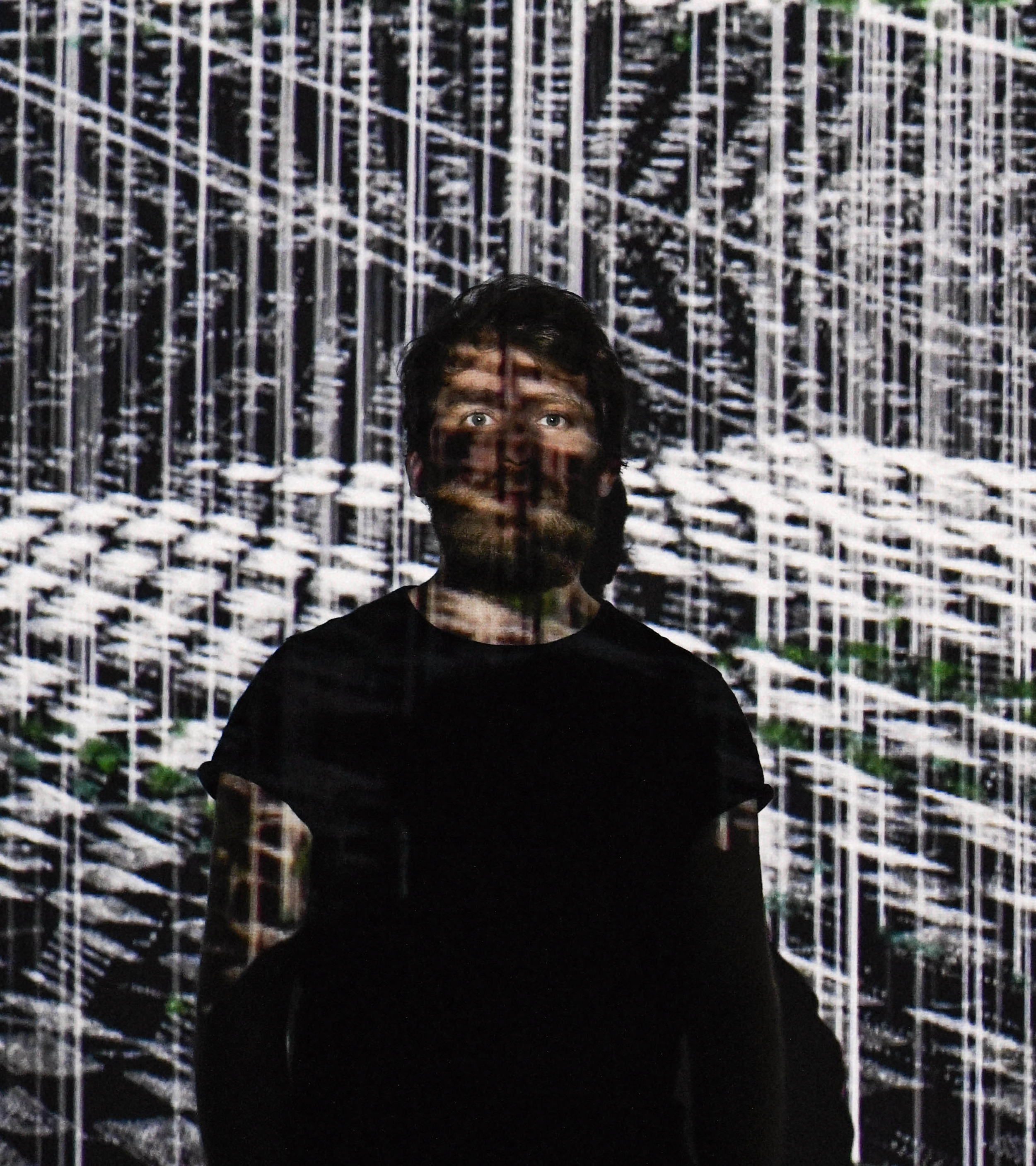
Versatile artist, Alberto Barberis is active as composer, electroacoustic performer, code artist, programmer and sound engineer. Since 2017 he teaches Electronic music, Music technologies, Live electronics and Acoustics at the Conservatorio della Svizzera Italiana of Lugano (CH) and Computer-aided algorithmic composition systems at the Ricerca Musicale (IRMus) of the Civica Scuola di Musica Claudio Abbado of Milan (IT). From 2022 he is part of the Basemental galaxy. As a guitarist, he obtained the Diploma and the Master Degree at the Conservatories of Turin and Brescia (IT). He studied also engineering and composition, stimulated by the interest for algorithmic composition, electronic and computer music, code-art and multimedia-art. At the Polytechnic University of Turin (IT) he graduated in Cinema and Media Engineering. After attending the courses of mathematician and composer Giovanni Albini he graduated with full marks at the Master of Arts in Composition and Theory and then at the MAS (Master of Advanced Studies) in Composition at the Conservatorio della Svizzera italiana of Lugano (CH). Since 2012 he is the Assistant Artistic Director of the highSCORE New Music Center, and he is part of the collective of musicians linked to the FloatingForest Record, label of improvisational and experimental music. Since 2019 he is the executive Producer of the Association for contemporary music OGGIMUSICA. He worked with several contemporary music ensembles including the Ensemble Recherche (D), the Moscow Contemporary Music Ensemble – MCME (RUS), the Eutopia Ensemble (IT), and participated in international festivals such as La Biennale Musica di Venezia (IT), ARS ELECTRONICA Garden Lugano (CH), ElectroPark Festival (IT), Nachtstrom (CH), Art Test Fest (IT), Zed Festival (IT), Paco Urondo (ARG), Mirabilia (IT), Lugano Musica (CH), Lugano In Scena (CH), FIT Festival (CH), Maggio Elettrico (IT), AFEKT (ET), Teatri di Vetro (IT), Festival Aperto (IT), Seeyousound (IT), EstOvest Festival (IT). He performed in important theatres such as Teatro Goldoni (Venezia, IT), Teatro Argentina (Roma, IT), Teatro LAC (Lugano, CH), Teatro della Tosse (Genova, IT), Teatro Valli (Reggio Emilia, IT), Teatro dell’Opera di Lausanne (Lausanne, CH), Teatro Nazionale di Genova (Genova, IT), Polo del ‘900 (Torino, IT), Usina Cultural (ARG). He is the winner of the Werkjahr2017 of the Christoph Delz Foundation of Basel (CH), with a research project about the interaction between orchestral instruments and electronic devices. From 2018 he collaborates with the visual artist Rajan Craveri, both in the creation of multimedia shows (A/V installations, audio reactive concerts, A/V artworks, etc.) and in the design and development of multimedia softwares. From 2022 he collaborates with saxophonist Bera Romairone for the works Oratorio Virtuale and the project duo QORA!. Alongside his artistic activity he develops applications and softwares for music creation, education and performance. In his creations he combines acoustic instruments, electronic devices, digital art and programming with an expressive urge, and a constant reflection on the bio-technological present.
Giovanni Cestino
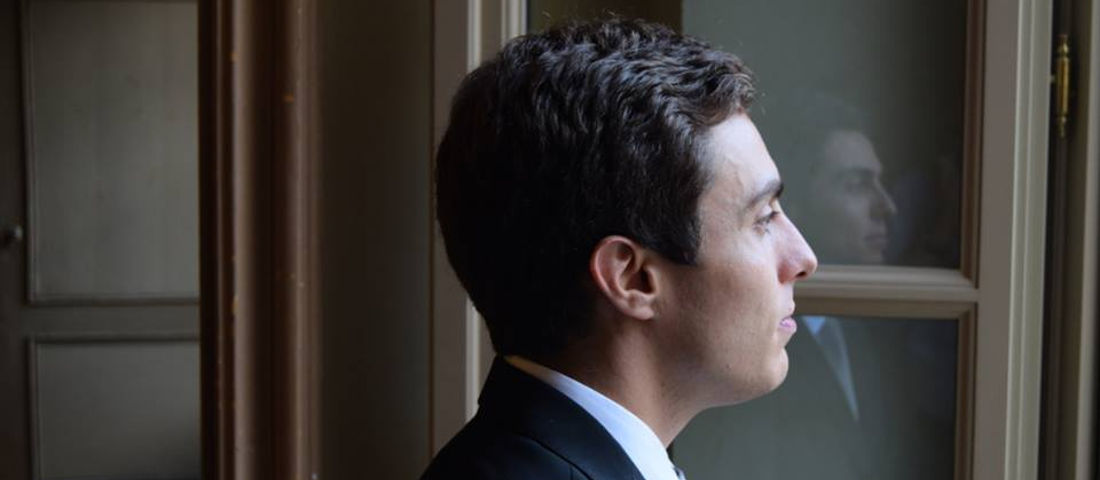
Giovanni Cestino (1992) holds a degree in Classical guitar from Conservatory of Alessandria, a MA in Musicology from University of Pavia, and a PhD in Musicology from University of Milan. He also took courses in Composition, Choral Conducting, and Renaissance Lute. He collaborates with LEAV – Ethnomusicology and Visual Anthropology Lab (University of Milan), and with Centro Studi Luciano Berio (Florence). Between 2018 and 2019 he has been visiting fellow at the Harvard Music Department. He also took part in several projects by the Paul Sacher Stiftung (Basel), which recently awarded him a six-months research scholarship. He currently a faculty member at Milan Choral Academy, and a postdoctoral fellow at University of Milan (Department of Cultural Heritage and Environment).
Paolo Fosso
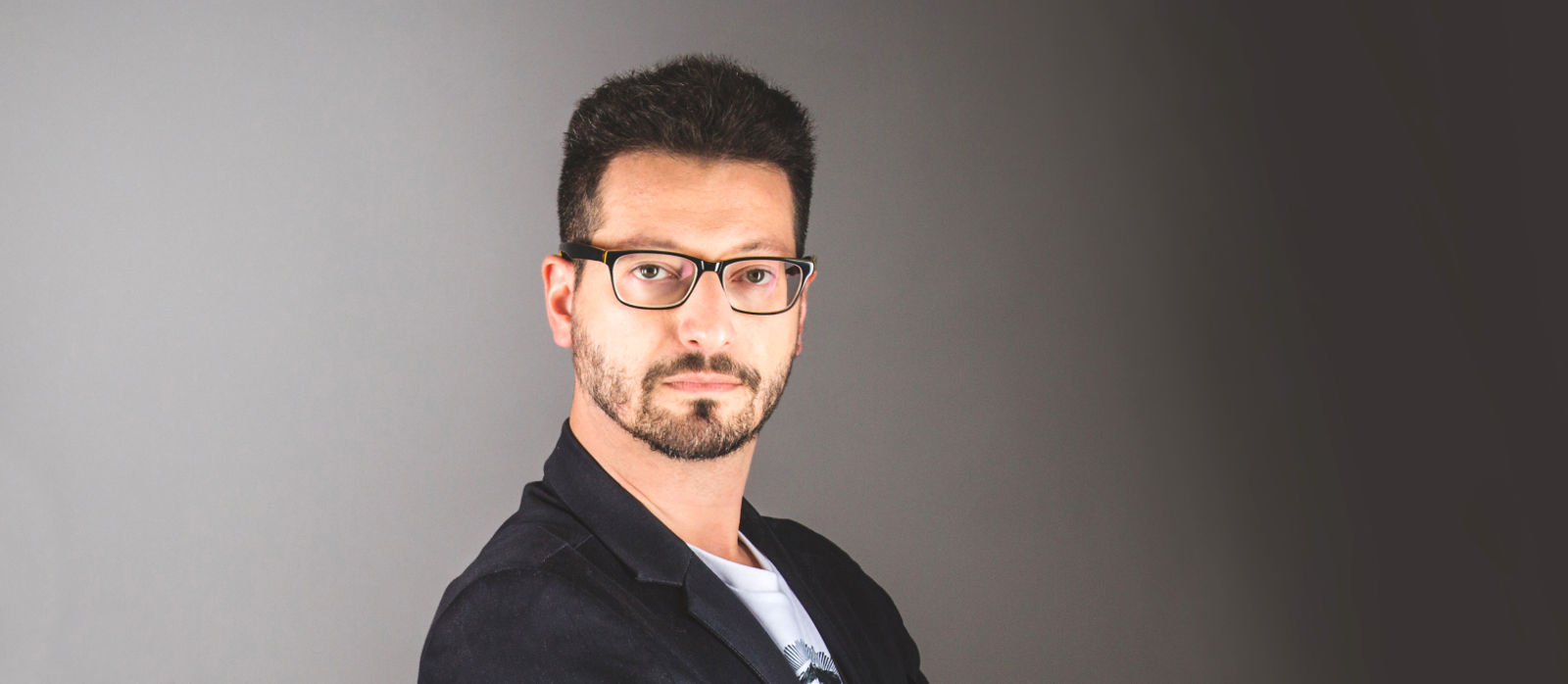
Paolo Fosso is a composer and an Event Manager, dedicated to promoting contemporary music and digital awareness by featuring a range of events throughout the year, such as the highSCORE Festival and the Screen Music Program. Nominated at the International Sound & Film Music Festival (ISFMF), “one of the largest and most important film music festivals in the world.” President of the Conservatory of Pavia from 2010 to 2013. Selected by the European Commission in Brussels as Expert both in the MEDIA and in the Culture programs. Global Head of Contents at Campus Party, the greatest technological experience of the world. He studied Computer Science at the University of Milan and Composition at the Conservatory of Milan. As a passionate Entrepreneur, he invests in marketing and technology. Recipient of the Ivano Becchi Professional Award endowed by the Banca del Monte di Lombardia Foundation and the Talent of Ideas prize by UniCredit Bank.
mdi ensemble
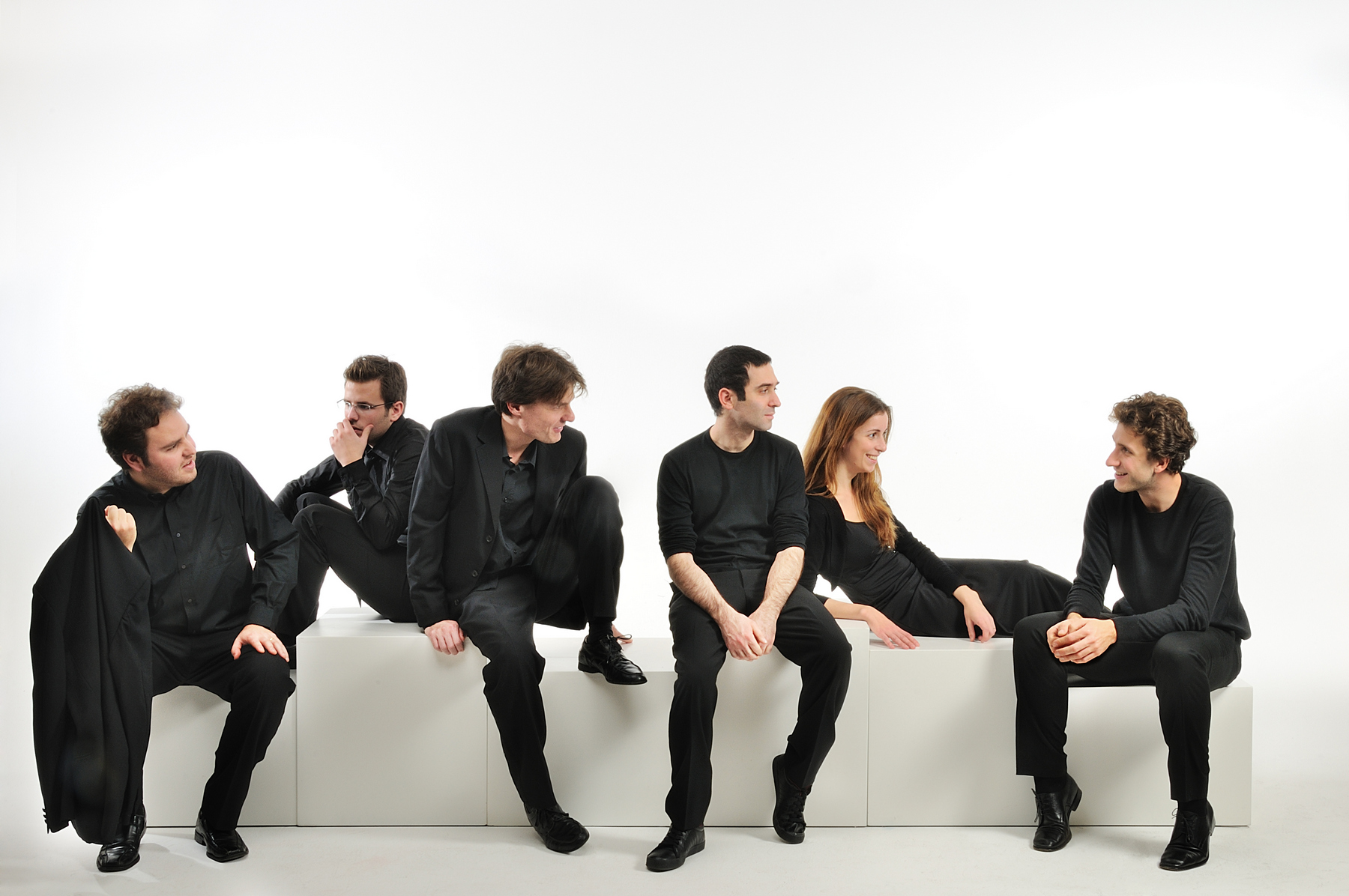
mdi ensemble was founded in Milan in 2002. In 2017, it was awarded the “Una vita nella musica” (A Life in Music) prize by the Teatro alla Fenice in Venice, for pursuing «with tenacity and tireless study a very specific purpose, namely tackling the production of contemporary music with a strong identity of sound and interpretative style, akin to chamber formations dedicated to traditional repertoire.» In 2021, the ensemble received the Franco Abbiati Award dedicated to Mario Messinis «for dedication to contemporary repertoires, approached with analytical discipline and poetic insight, identifying in direct dialogue with the performed composers the key to deciphering scores of very different signs, always cultivating its own sound and interpretative style.» From the beginning, the ensemble has collaborated with some of the greatest living composers and has been a regular guest at the most important musical institutions in Italy and abroad, including the Milano Musica Festival, the Venice Biennale Music, the Società del Quartetto in Milan, the Bologna Festival, Mito-Settembre Musica, the Ravenna Festival, the Festival dei Due Mondi, the Transart Festival, the Présences Festival of Radio France, the Jeunesse Festival in Vienna, ORF in Innsbruck, Villa Concordia in Bamberg, SWR in Stuttgart, SMC in Lausanne, LACMA in Los Angeles, and the Chelsea Music Festival in New York. The ensemble has collaborated with conductors such as Marco Angius, Stefan Asbury, Robert HP Platz, Emilio Pomarico, Yoichi Sugiyama, and Pierre-André Valade. Since 2016, mdi ensemble has organized the concert and masterclass series “Sound of Wander” in Milan. The ensemble has recorded CDs dedicated to Simone Movio, Mauro Lanza and Andrea Valle, Marco Momi, Giovanni Verrando, Misato Mochizuki, Emanuele Casale, Sylvano Bussotti, Stefano Gervasoni (Charles Cros Academy Award, “Coup de coeur-musique contemporaine” 2009), Simone Movio. The DVD “See the Sound–Homage to Helmut Lachenmann” was broadcast on Rai 5 and Sky Classica.
Fabrizio Nastari
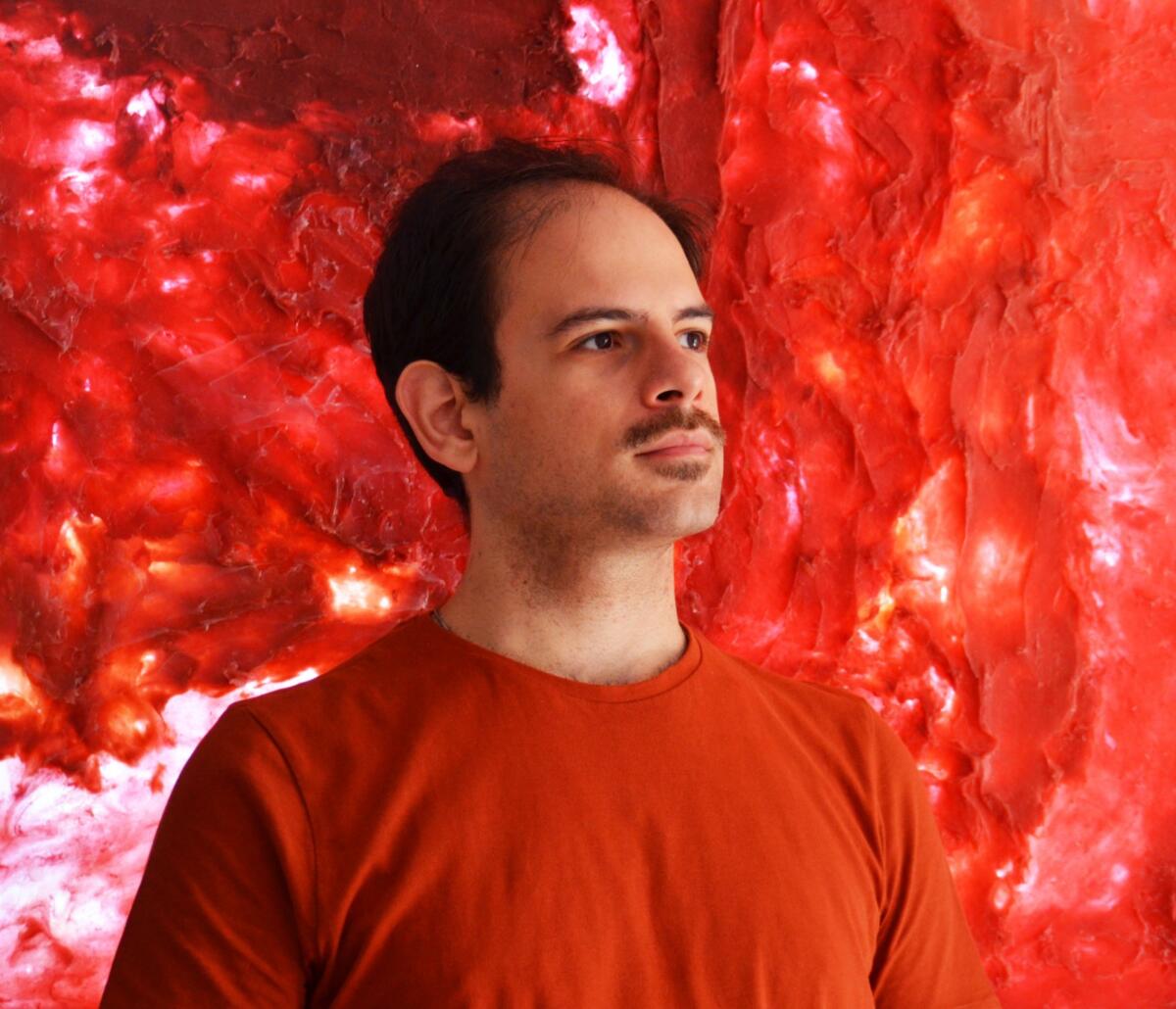
Fabrizio Nastari (b. 1990, Roma) is an Italian composer whose aesthetic is based on the use of ironic devices. He is currently pursuing a PhD degree in Artistic Research at the Estonian Academy of Music and Theatre in Tallinn as a composer. Using a broad spectrum of techniques, to create contrast or to seek cohabitation for different musical textures, Fabrizio wants to reflect upon the absurdity of the time we are living in and the complexity of the human being. Irony has a primary role as inspiration and as a rhetorical and compositional tool as well. He is active as a researcher through the publishing of articles and presenting his works in international conferences as well. His music has been performed by important performer such as Mivos Quartet, Livia Rado, Tema Quartet, Paolo Ravaglia, Quartetto Indaco, Estica Woodwind quintet, Prezioso String Quartet, unassisted fold etc. in important Festival in Europe such as , “Estonian Music Days”, “RavennaFestival”, “highSCORE Festival”, “UNM Festival”, “VIPA Festival”, “Le forme del suono”, “Commute Festival” and others. Alongside Classical Guitar and Piano, he has studied Composition, Electroacoustic Composition and Choral Conducting at the Conservatorio “Ottorino Respighi”. Since 2017 he lives in Tallinn where he got his Master degree in Classical Composition studying with Toivo Tulev and Helena Tulve. He took part in several masterclasses, seminars and workshops with many composers such as Helmut Lachenmann, Julia Wolfe, Stefano Gervasoni, Michael Finnissy, Rebecca Saunders, Ivan Fedele, and others. Since 2019 he works as a production assistant in the highSCORE Festival.
